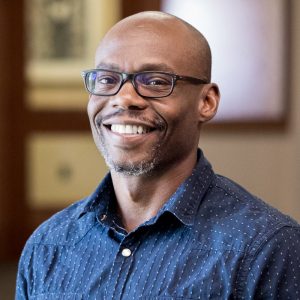The Wisconsin State Journal utilized the expertise of UW–Madison’s Yorel Lashley for an article about supporting the social and emotional learning needs of students.

“Now, in the time of COVID, social and emotional learning is even more important,” said Lashley, the director of arts in the School of Education’s office of Professional Learning and Community Engagement (PLACE). “Most people are suffering some sort of isolation. Everyone is going through it.”
The focus of Lashley’s research is on how social emotional learning happens and how teachers and schools can build opportunities for students to practice these skills, the article explains. Though he was focused on this kind of learning before COVID-19, the pandemic has brought his work to the forefront.
Now, both parents and teachers are looking at how to create spaces in virtual learning environments to facilitate social emotional learning in five major areas: self awareness, social awareness, self-management, responsible decision-making, and relationship skills.
“It’s not a top down thing,” Lashley said.
“We send our kids to school to become whole, healthy, functioning people, not to become mathematicians, nor to learn academics in ways that isolate those skills from practical applications.”
Teachers and parents need to set aside “real time for real talk,” Lashley said, “where kids can problem solve and work through things. At the end of the day you have to prioritize it and make time for it.”
Lashley also said teachers “have to know how to do it.” In an informal survey of teachers, Lashley found that school staff and administrators showed a wide range in the depth of knowledge about social and emotional learning.
“Staff are going to need support and training to do this work,” he said. “It’s not likely to be an easy shift.”
However, Lashley expressed that this moment offers a unique opportunity.
“If we think we’re just going to wait for things to become ‘normal’ again … we’re going to miss an opportunity. We know there are a number of kids, especially Black, Indigenous, people of color, Black and brown students, that were not being served well by our educational systems before COVID. Ideally we should try to come out on the other side of this doing this better than we did before.”
For more of Lashley’s insights, check out the full article on the Madison.com website, here.